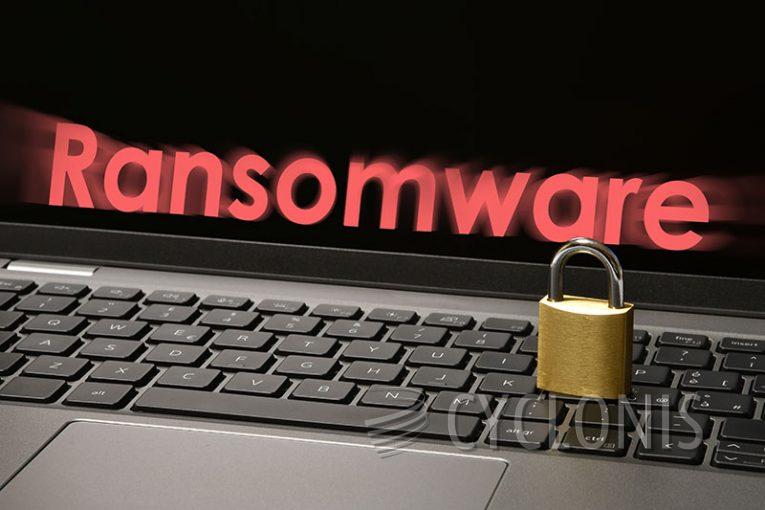CryBaby Ransomware Asks for 0.01 Bitcoin

During the process of reviewing newly submitted file samples, our team of researchers stumbled upon a malicious program dubbed CryBaby. This particular program has been meticulously crafted to perform data encryption and subsequently demand a payment in exchange for decryption. Given its behavior, CryBaby falls into the category of ransomware.
When subjected to testing within our controlled environment, the program effectively encrypted various files and appended the ".lockedbycrybaby" extension to their original filenames. To illustrate, a file named "1.jpg" underwent encryption and emerged as "1.jpg.lockedbycrybaby," while "2.png" transformed into "2.png.lockedbycrybaby," and so forth. Upon completion of the encryption process, CryBaby exhibited a ransom note through a pop-up window.
This ransom note serves to inform the victim about the encryption of their files. According to the content of the note, the sole avenue for recovering the compromised data is by acceding to the attackers' demands and making a payment.
The victim is granted a brief three-day period to fulfill a ransom payment equivalent to 0.013733 BTC (Bitcoin cryptocurrency), which, as of the current moment, equates to roughly 400 USD (please bear in mind that exchange rates are subject to continuous fluctuations, rendering the conversion potentially inaccurate over time).
Furthermore, the victim is cautioned against attempting to remove the ransomware from their system. They are also advised to disable any installed anti-virus software, as these security measures might inadvertently eliminate the malware.
CryBaby Ransom Note Asks for Relatively Modest Ransom
The complete text of the CryBaby ransom note reads as follows:
CryBaby
YOUR FILES HAVE BEEN ENCRYPTED!What happened to my computer?
Your important files are encrypted.
Many of your documents, photos, videos, database and other are no longer accessible because they have been encrypted. Maybe you are busy looking for a way to recover your files, but do not waste your time. Nobody can recover your files without our decryption key.Can I recover my files?
Sure. We guarantee that you can recover your file safely and easily. But you have not so enough time.
You have only 3 days to submit the payment.How do I pay?
Payment is accepted in Bitcoin only.
Please check the current price of Bitcoin and buy some bitcoins.
And send the correct amount to the address specified in this window.Contact
If you need some assistance, send a email to: thisname43@protonmail.com or thisname@dnmx.orgWe strongly recommend you to not remove this software, and disable your anti-virus for a while, until you pay and the payment gets processed. If your anti-virus gets updated and removes this software automatically, it will not be able to recover your files.
TIME REMAINING -
WALLET ADDRESS: (alphanumeric string)
BITCOIN FEE: 0.013733
How Can Ransomware Like CryBaby Enter Your System?
Ransomware like CryBaby can enter your system through various means, often exploiting vulnerabilities or employing deceptive tactics to compromise your device and files. Here are some common ways ransomware can infiltrate your system:
- Malicious Email Attachments: Cybercriminals frequently send phishing emails containing malicious attachments, such as infected documents or executables. These attachments may be designed to exploit vulnerabilities in your software when opened.
- Phishing Links: Ransomware can be distributed through phishing emails containing links to malicious websites. Clicking on these links can lead to the automatic download and execution of the ransomware payload.
- Malicious Downloads: Downloading software or files from untrustworthy or compromised websites can result in ransomware infection. Criminals might disguise the ransomware as legitimate software or files to deceive users.
- Drive-by Downloads: Visiting compromised websites or clicking on malicious ads can trigger automatic downloads of ransomware without your consent or knowledge.
- Exploiting Software Vulnerabilities: Ransomware can exploit security vulnerabilities in your operating system, applications, or plugins to gain unauthorized access and install itself.
- Malvertising: Cybercriminals can inject malicious code into online advertisements, redirecting users to websites that host ransomware payloads.
- Remote Desktop Protocol (RDP) Attacks: If you have remote desktop services enabled and improperly configured, attackers can exploit weak passwords or vulnerabilities to gain access and install ransomware.
- Infected Software Installers: Illegitimate or tampered software installers can carry ransomware payloads. Downloading and installing software from unofficial sources increases the risk of encountering ransomware.








